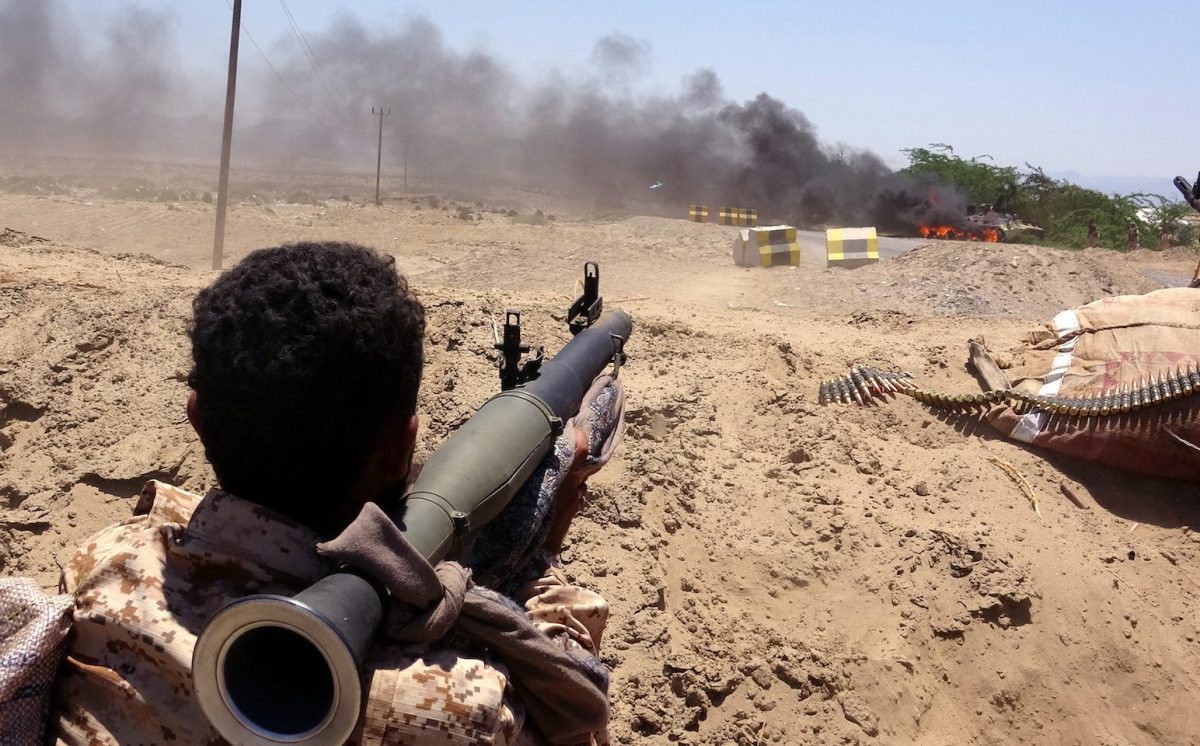[ad_1]
The new US administration’s change of direction on Yemen is stirring both hope and caution as new US special envoy Timothy Lenderking readies a new peace mission and emboldened Houthi fighters return to the offensive.
US State Department spokesman Ned Price said late on February 7 that Washington was “deeply troubled by continued Houthi attacks†and urged them to “refrain from destabilizing actions.â€
At the center of the renewed fighting is the key strategic city and airfield of Ma’rib, currently held by forces loyal to President Abdrabbuh Mansur Hadi’s government, which is backed by both Saudi Arabia and the UAE.
Houthi forces have reportedly launched a new offensive to try and capture the city just two days after the US revoked a “terrorist†designation slapped on them by the departing Donald Trump administration.
The offensive also comes just four days after President Joe Biden announced the US was ending support for Saudi-led offensive operations in Yemen against the Iran-backed Houthi rebels.
“The situation is critical now,†Abdulghani Al-Iryani, senior researcher for the Sana’a Centre, told Asia Times, “because the Houthis have not read the message from Washington properly.â€
The fear is that more militant elements within the Houthi leadership have taken recent US moves as a sign of weakness and are now doubling down efforts to win the grueling, years-long war.
This is despite the fact that, “Everyone’s known for some time that there is no military solution to this conflict,†Elisabeth Kendall, Yemen expert at Oxford University’s Pembroke College, told Asia Times.Â
The war has so far led to the deaths of some 233,000 people, according to the UN Office for the Coordination of Humanitarian Affairs (OCHA), and plunged the country into economic ruin.
Some 24.3 million people – 80% of the population – are in need countrywide, according to the latest UN High Commission for Refugees (UNHCR) bulletin, with more than one million lacking “adequate shelter and basic items.â€
A major health crisis is also underway, as Covid-19 spreads and the threat of cholera also looms.
In addition, “Yemen is edging very quickly towards all-out famine,†says Al-Iryani, “but unfortunately, it seems the parties just want to escalate the crisis.â€
Shifting sands
After driving Hadi out of Yemen’s capital, Sana’a, in 2014, the Houthis began a major drive into southern Yemen.
Saudi Arabia’s response was to assemble a nine-country coalition and in 2015 launched “Operation Decisive Storm†– a military invasion of the country.
Under then-president Barack Obama, the US provided the operation with intelligence and logistical support. The UK and France also assisted the Saudi-led force.
Under Trump, this support continued despite growing concerns over the human cost of the fighting, its failure to defeat the Houthis and the growing fragmentation of the country.
A close relationship also developed between Washington, Riyadh and Abu Dhabi, with Trump’s secretary of state, Mike Pompeo, eventually designating the Houthis a “terrorist†group in 2020, just before the end of Trump’s presidency.
Now under President Biden, the US appears to have decided enough is enough.
“It was very clear that the war being prosecuted wasn’t working,†says Kendall. “It needed someone who understands the urgency to step in before the conflict fragments domestically, spreads regionally and we had a full-on famine on our hands.â€
Biden has also made no secret in the past of his opposition to the Saudi-led operation and the Saudi government.
During debates for the Democratic Party presidential nomination in November 2019, Biden said that under his leadership the US would “end the sale of material to the Saudis where they are going in and murdering children.â€
Biden has so far been true to that campaign promise, freezing arms sales to Saudi Arabia and the UAE on January 28 and withdrawing support for the war on February 4.
“Biden does have leverage over the Saudi-led coalition side,†says Kendall, although, “we will have to watch how he manages to keep his election promises without completely alienating his allies.â€
Where he has less leverage is over the Houthis.
“At the moment, it seems that the Houthis are not willing to de-escalate,†Sama’a Al-Hamdani, Yemen analyst and non-resident scholar with the Middle East Institute, told Asia Times. “This could push other warring parties to retaliate harshly in other fronts. In the case of the latter, it would be civilians who would undoubtedly pay the price.â€
Iran is the Houthi’s principal international backer and chief influencer. The UN’s Yemen envoy Martin Griffiths visited the Iranian capital for the first time on February 7 in an effort to bring Tehran onboard a new peace initiative.
Tehran had earlier welcomed the US change of heart provided “it is not a political maneuver,†Iranian Foreign Ministry spokesperson Saeed Khatibzadeh said on February 8.
Yet, “The Iranian Foreign Ministry still insists that for de-escalation the Houthis should be recognized as the legitimate government of Yemen,†says Al-Iryani, “so things are not going in the right direction.â€
Long road ahead
“Anyone who thinks peace is on the cards is going to be disappointed,†says Kendall. “But what can happen is that an effort can be made to prevent the conflict getting worse. That in itself would be a major achievement.â€
The country is already fragmenting, with conflicts also erupting between south and north and within the south in addition to the frontlines between Houthis and Saudi-backed forces in the center and north.
“I’m hoping that the Houthis will de-escalate before it is too late,†says Al-Iryani. “If not, the US may re-enter the conflict on the side of the Saudis in a big way and we’ll see a major escalation of the conflict.â€
For certain, the new US Yemen special envoy faces “a massive challenge,†says Kendall. “But the US didn’t even have a special Yemen envoy before. So it’s a start, at least.â€
[ad_2]
Source link










